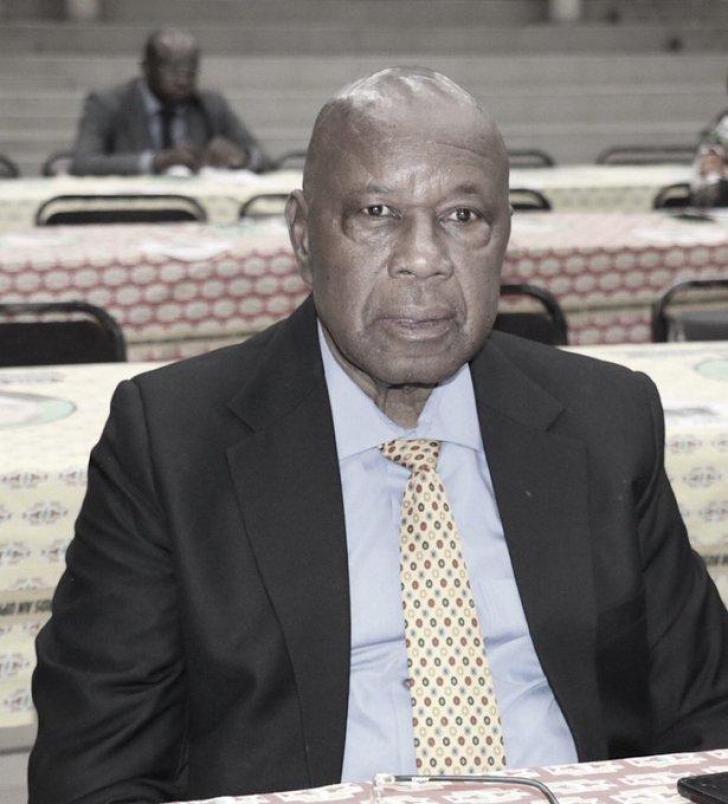News / National
Mnangagwa allies suffer major defeat at War Veterans Congress
13 Oct 2024 at 11:45hrs |
0 Views

In a significant political shake-up within Zanu-PF, President Emmerson Mnangagwa's key allies among war veterans, Christopher Mutsvangwa and Victor Matemadanda, faced unexpected defeats at the Zimbabwe National Liberation War Veterans Association elective congress held yesterday at the Zanu-PF Convention Centre in Gweru.
Mutsvangwa, the last elected leader of the war veterans in 2013, was overwhelmingly beaten by Cephas Ncube from Bulawayo province, receiving a mere 11 votes compared to Ncube's commanding 294. Matemadanda, a staunch Mnangagwa loyalist and the outgoing war veterans secretary-general, came in third with 75 votes. Albert Ncube from Matabeleland North secured second place with 90 votes.
The outcome of the congress is particularly notable given the historical importance of war veterans as a political constituency within Zanu-PF. This election marked a pivotal moment as the veterans had previously been unable to hold their elective congress in 2018. The defeats of Mutsvangwa and Matemadanda, both vocal supporters of Mnangagwa, in the president's political stronghold signal a shifting balance of power within the party.
Cephas Ncube's election as the new chairperson of the war veterans reflects a growing influence of factions aligned with Vice President Constantino Chiwenga. Alongside Ncube, Shorai Nyamangondo was elected unopposed as vice chairperson. The new executive also includes Joel Murerengwa (Secretary-General), Thomas Manyima (Legal Affairs), Vincent Chinone (Transport), Section Ncube (Finance), Sanik Nguni (Security), Cde Nyembesi Togara (Women Affairs), and Samuel Parirenyatwa (Political Commissar), indicating a consolidation of power for the Ncube faction.
Mutsvangwa and Matemadanda's defeats come at a critical juncture ahead of Zanu-PF's annual conference scheduled for October 22 in Bulawayo, as tensions escalate between Mnangagwa and Chiwenga over the party's leadership dynamics. Both leaders are vying for control of the party and its resources amid an increasingly contentious political landscape.
The fallout from this congress may have broader implications for Mnangagwa, who is reportedly seeking to extend his presidency beyond the 2028 constitutional term limit to 2030, a claim he publicly denies. Chiwenga and his faction are increasingly positioned as opponents to Mnangagwa's continued rule, particularly beyond the 2028 deadline.
Since coming to power in 2017, Mnangagwa has faced criticism for maintaining the status quo in Zimbabwe rather than enacting substantial reforms. Observers note that his administration has provided more continuity than the decisive break from the past that many had anticipated following the ousting of former President Robert Mugabe.
As the power struggle within Zanu-PF intensifies, the recent congress results may reshape alliances and influence the future direction of the party, leaving analysts and supporters alike questioning what lies ahead for Zimbabwe's political landscape.
Mutsvangwa, the last elected leader of the war veterans in 2013, was overwhelmingly beaten by Cephas Ncube from Bulawayo province, receiving a mere 11 votes compared to Ncube's commanding 294. Matemadanda, a staunch Mnangagwa loyalist and the outgoing war veterans secretary-general, came in third with 75 votes. Albert Ncube from Matabeleland North secured second place with 90 votes.
The outcome of the congress is particularly notable given the historical importance of war veterans as a political constituency within Zanu-PF. This election marked a pivotal moment as the veterans had previously been unable to hold their elective congress in 2018. The defeats of Mutsvangwa and Matemadanda, both vocal supporters of Mnangagwa, in the president's political stronghold signal a shifting balance of power within the party.
Cephas Ncube's election as the new chairperson of the war veterans reflects a growing influence of factions aligned with Vice President Constantino Chiwenga. Alongside Ncube, Shorai Nyamangondo was elected unopposed as vice chairperson. The new executive also includes Joel Murerengwa (Secretary-General), Thomas Manyima (Legal Affairs), Vincent Chinone (Transport), Section Ncube (Finance), Sanik Nguni (Security), Cde Nyembesi Togara (Women Affairs), and Samuel Parirenyatwa (Political Commissar), indicating a consolidation of power for the Ncube faction.
Mutsvangwa and Matemadanda's defeats come at a critical juncture ahead of Zanu-PF's annual conference scheduled for October 22 in Bulawayo, as tensions escalate between Mnangagwa and Chiwenga over the party's leadership dynamics. Both leaders are vying for control of the party and its resources amid an increasingly contentious political landscape.
The fallout from this congress may have broader implications for Mnangagwa, who is reportedly seeking to extend his presidency beyond the 2028 constitutional term limit to 2030, a claim he publicly denies. Chiwenga and his faction are increasingly positioned as opponents to Mnangagwa's continued rule, particularly beyond the 2028 deadline.
Since coming to power in 2017, Mnangagwa has faced criticism for maintaining the status quo in Zimbabwe rather than enacting substantial reforms. Observers note that his administration has provided more continuity than the decisive break from the past that many had anticipated following the ousting of former President Robert Mugabe.
As the power struggle within Zanu-PF intensifies, the recent congress results may reshape alliances and influence the future direction of the party, leaving analysts and supporters alike questioning what lies ahead for Zimbabwe's political landscape.
Source - online
Join the discussion
Loading comments…









































